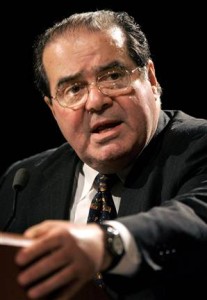The rule of law suffered another blow yesterday, as did common sense and the meaning of words. We owe this all to the United States Supreme Court.
 Obamacare lives (sort of) still. In a 6-3 decision, as explained by Chief Justice John Roberts, the federal subsidies survived the legal challenge (sort of). Actually, the wording of the Obamacare law was disregarded and the federal subsidies were judged to be constitutional simply because Roberts and the other five justices who followed him, decided that exchanges set up by the states meant either the states or the federal government.
Obamacare lives (sort of) still. In a 6-3 decision, as explained by Chief Justice John Roberts, the federal subsidies survived the legal challenge (sort of). Actually, the wording of the Obamacare law was disregarded and the federal subsidies were judged to be constitutional simply because Roberts and the other five justices who followed him, decided that exchanges set up by the states meant either the states or the federal government.
That’s right. We no longer worry about the words in the laws themselves; instead, we infer what the drafters of the law really intended. Surely they meant that all subsidies, whether state or federal, were intended, even though the law explicitly says only exchanges set up by the states are allowed to provide those subsidies.
Our topsy-turvy government world continues to amaze and confound us.
 Justice Antonin Scalia, in a stinging dissent, took the Court to task for this violation of its constitutional role. Here are some quotes from his dissent:
Justice Antonin Scalia, in a stinging dissent, took the Court to task for this violation of its constitutional role. Here are some quotes from his dissent:
We should start calling this law SCOTUScare. T]his Court’s two decisions on the Act will surely be remembered through the years. And the cases will publish forever the discouraging truth that the Supreme Court of the United States favors some laws over others, and it prepared to do whatever it takes to uphold and assist its favorites.
Words no longer have meaning if an Exchange that is not established by a State is “established by the State.”
Under all the usual rules of interpretation, in short, the Government should lose this case. But normal rules of interpretation seem always to yield to the overriding principle of the present Court: The Affordable Care Act must be saved.
Perhaps sensing the dismal failure of its efforts to show that “established by the State” means “established by the State or the Federal Government,” the Court tries to palm off the pertinent statutory phrase as “inartful drafting.” This Court, however, has no free-floating power to rescue Congress from its drafting errors.
Rather than rewriting the law under the pretense of interpreting it, the Court should have left it to Congress to decide what to do about the Act’s limitation of tax credits to state Exchanges.
I could have included more, but you get the drift. That last quote points to the fact that this Supreme Court decision, despite what President Obama says, does not have to be the last word.
Congress, if it can garner the courage, can always overturn this despicable law and the equally despicable decision the Court announced yesterday. Now is the time—well past the time, really—to rally around alternative measures to ensure health coverage is available to all, at affordable prices, in a competitive marketplace.
Where is courage when we need it?
